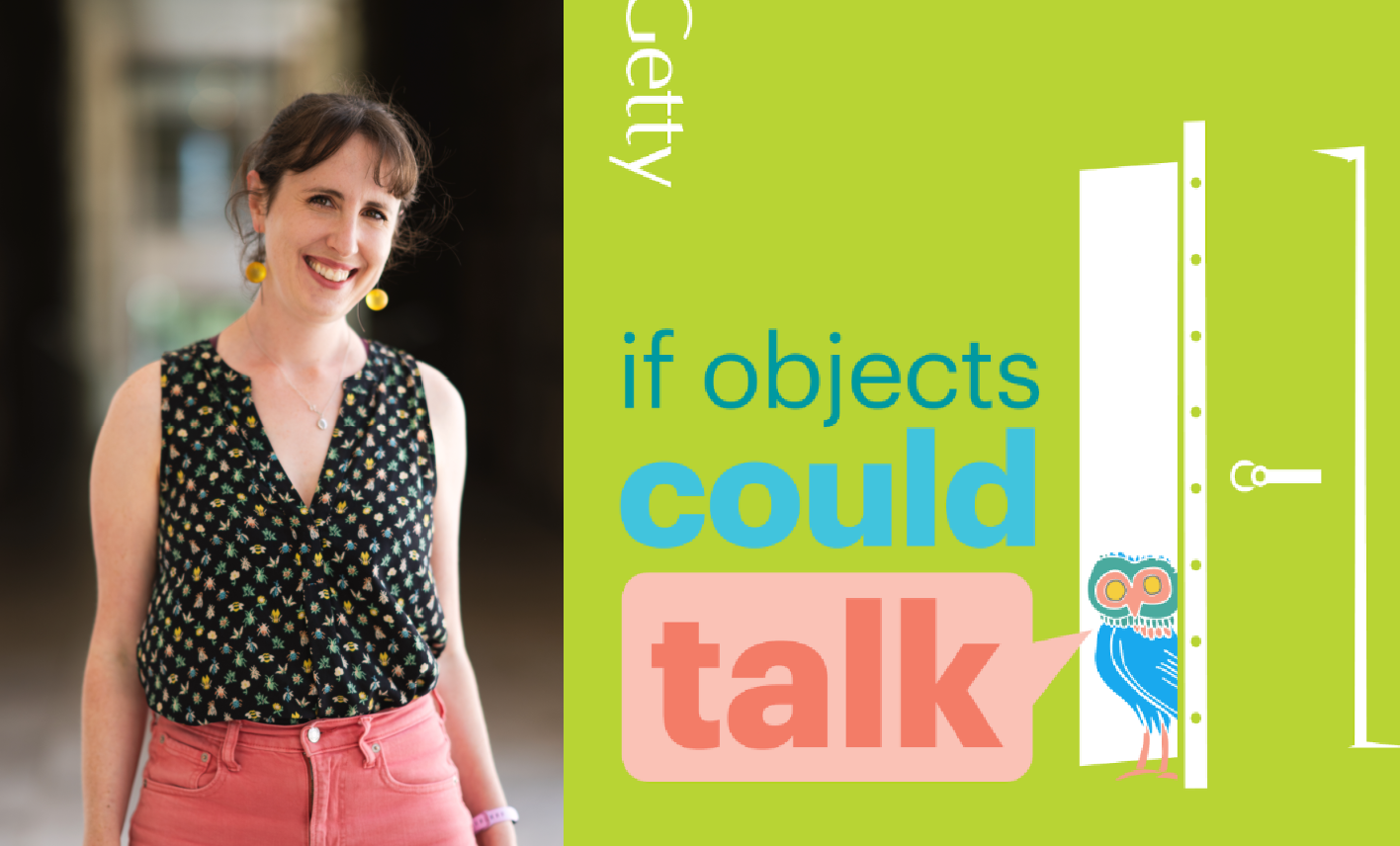Zoe Goldman
Zoe Goldman is the producer of If Objects Could Talk (released September 8, 2025). Zoe began as a podcast producer at the Getty in 2018 working with Getty President Jim Cuno on Art + Ideas, the institution's first podcast. She currently produces Recording Artists, which has won numerous awards, including from the Webbys, the Communicator Awards, and the Anthem Awards. With a background in art history, she loves bringing art stories outside the gallery walls.
Shreya Sharma: Tell us about If Objects Could Talk in ten words or less.
Museum objects come alive to talk about themselves.
SS: Why did Getty decide to make podcasts?
From the start, Getty’s mission has been to make art more accessible. Podcasts are another step toward that goal. And for art nerds it is so cool to get to hear from artists you’ve only ever read about in their own words and voices.
Podcasts are a great way to meet people where they are—in their homes, their cars, the gym—and bring an appreciation for art into their daily lives.
SS: Who should listen to If Objects Could Talk? (It’s a kids show, yes, but who else can tune in?)
People who want a podcast that is light hearted and silly, but still want to learn something new. Each episode covers how art and artifacts were made, used, and enjoyed a really long time ago.
It’s for people who love dropping fun facts into every conversation—I learned about Egyptian cat mourning rituals, ancient dice games, and organ divination while making this show. I have been borderline insufferable for months sharing everything I’ve learned!
SS: Which episode had the most impact on you?
I am a die-hard cat person. So, of course, the episode on our cat-shaped statue that was likely an offering for a half-cat goddess has stayed with me. I consider myself well versed in cat facts. And even so, I learned a ton about how much the Egyptians loved their cats. But what really stood out to me were two things: just how long the Egyptian civilization lasted (we’re closer in time to Cleopatra than she was to the pyramids!); and just how little we really understand about Egyptian mythology.
SS: What’s a moral from a story that stuck with you the most? Why?
It’s not a moral, per se, but after sharing the episode on our feet-shaped lamp with my son, we’ve been doing regular shadow puppet shows. One of our writers, Tocarra, also does bedtime shadow puppets with her daughter now, too.
I learned about the history of the medium—like why it probably became more common with the advent of the oil lamp since you can’t get crisp shadows from a large fire, or how early 20th century performers did finger exercises to perfect their art. Shadow puppets also span cultures; seemingly every society has its own history telling stories using shadows. Light and shadow are universally fascinating.
SS: Art is the best way to learn a new culture. Do you agree? Disagree? Thoughts?
Everything that makes a culture distinct is an art—its music, its stories, its food, its architecture, and of course its visual arts. What is a culture if not a collection of artistic impulses a people relate to and share? So if we’re using this definition of art that I just made up, then yes, definitely, there’s no other way to know a culture except through its art!
SS: What has surprised you most about making your show?
That there aren’t more art podcasts for kids! There are dozens of science shows, history series, and storytelling podcasts, but not much in the way of art. Kids love art—from very young ages they’re trying to draw and sing and express themselves. So I’m hoping this starts a boom in art podcasts for kids, too!
SS: What’s one podcast that you love that everyone already knows about?
99% Invisible. A must listen for art and design lovers and curious city dwellers. And the first show I usually recommend when someone who doesn’t listen to podcasts asks me where to start.
SS: What’s one podcast you love that not enough people know about?
T&J: A Roman Empire Love Story. Working on our antiquities collection for If Objects Could Talk, I got really into learning about Roman civilization. The format of this podcast, with its occasional original songs and sound play, was something I haven’t heard elsewhere. Christine Laskowski’s voice is also incredibly soothing, making this show great for a commute or dinner time wind down.
Thank you, Zoe!

